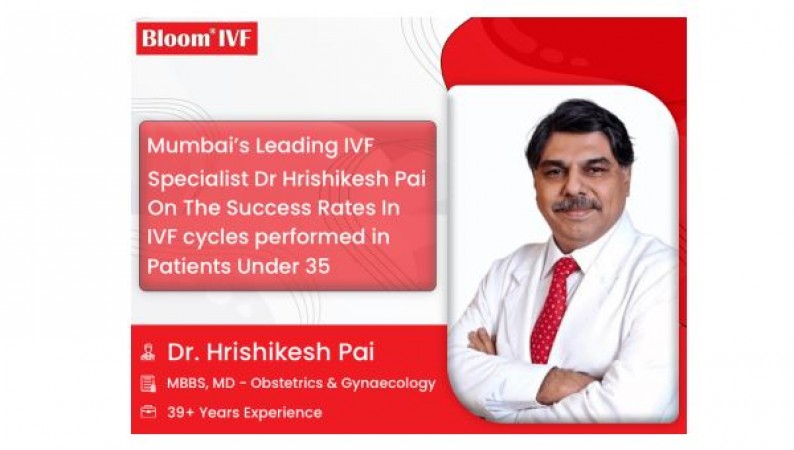
The success rate for IVF in India varies from 30% to 35%, while IVF success rates are 40% on average in young women globally. Women under 35 years of age have higher success rates. It is usually measured by the number of live births per embryo transfer in assisted reproductive technology, commonly known as ART. This technology is typically measured by the number of live births per embryo transfer, also known as the live birth rate.
Women begin life with a fixed number of eggs in their ovaries. However, as women get older, the remaining eggs have more abnormal chromosomes and the quantity of eggs decreases. Also, uterine fibroids and endometriosis, which are both linked to infertility, are more prevalent as women age.
A woman is most fertile during her late teens and up to her late 20s. After that, her fertility begins to decline as she reaches 30 years of age and decreases even further and faster till she reaches her mid30s. Finally, when she turns 45, it is highly impossible for her to get pregnant naturally.
Couples, single parents, and same-sex couples who want to have children can benefit from IVF, also known as in-vitro fertilization. The procedure requires six to eight weeks of preparation, beginning with mental and physical preparation, followed by taking fertility medications to obtain eggs and then harvesting them from the ovaries, fertilized them in a laboratory and implanted in the uterus to develop into a baby.
Dr Hrishikesh Pai, Director of Bloom IVF and one of India's leading IVF specialists, states that women aged 35 or younger are highly fertile, and hence their chances of conception are higher through IVF. Women in this age group who cannot conceive due to same-sex relationships, male infertility, or genetic disease can proceed with IVF treatment to bear children. As per the available statistics, there is a higher chance of succeeding in IVF cycles and may not require IVF cycles.
Dr Hrishikesh Pai has introduced innovations in assisted reproductive techniques in India, such as assisted laser hatching, spindle view, ovarian tissue freezing for cancer patients, oocyte freezing, IMSI and embryoscope. In addition, he is very experienced in handling complicated infertility cases with success.
There is more than a 50% chance for a woman under 35 to conceive in a single round of IVF. If a woman is below 35 years old with earlier pregnancies, she has a nearly 37% chance of getting pregnant through the IVF cycle. In the case of a woman in her 20s, she has almost 34% chance of getting pregnant through an IVF cycle with two or more two than children. Statistics also reveal that approximately 40% of the transferred embryos are likely to fertilize in the IVF cycle.
Concluding, Dr Hrishikesh Pai says, 'The success rate of an IVF treatment is most likely to be impacted by "the age" of the woman undergoing the procedure. Women in the younger demographic are more likely to have higher IVF success rates. Hence, I advise my patients to consider the age factor when planning to proceed with assisted reproductive techniques to conceive.'
About Dr Hrishikesh Pai
Dr Pai has been a pioneer in Infertility and IVF since 1991. He presently heads the Bloom IVF Group, which operates eight IVF centres across India, including Lilavati Hospital in Mumbai and Fortis Hospitals in New Delhi, Gurugram, Faridabad, Mohali, and Navi Mumbai. In addition, as a way to provide poor people with advanced medical care, Dr Pai has established an IVF clinic at D Y Patil Medical College. As a result of his substantial contributions to the medical field, the International Agency for Frost & Sullivan granted him the 'Best IVF Group in India' prize in 2013. Additionally, his colleagues elected him President of the Indian Society for Assisted Reproduction (ISAR) in 2015 in appreciation of his work.
Dr Pai has been instrumental in introducing office Hysteroscopic surgery in India. In addition, he has assisted India's family planning initiatives by running one of the most successful laparoscopic programmes. In acknowledgement of his pioneering research in endoscopy, Dr Pai was made President of the prestigious Indian Association of Gynecological Endoscopists in 2008. Even today, Dr Pai is working tirelessly to improve women's and child's health in India.
Winter Recipe: Peanut Chikki recipe, benefits of eating it
Sami Osman states facts about how fitness is influenced by our lifestyle